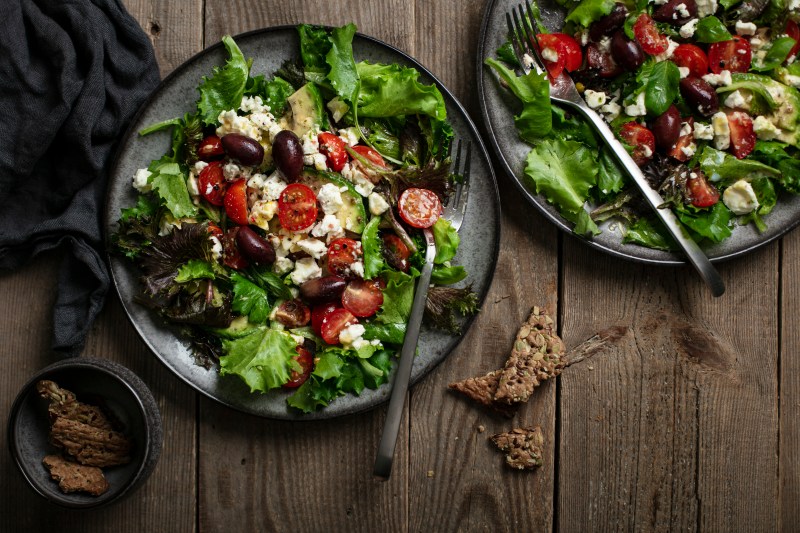The MIND diet might help grow you a better brain


New research says you can grow bigger brains by eating more whole grains and olive oil. Photo: Getty
Bad food grows you a bigger belly. Can you grow bigger brains by eating good quality food?
Yes, you can.
That’s according to a fascinating new study from Zhejiang University School of Medicine, and Harvard T. H. Chan School of Public Health.
The scientists found that higher adherence to what’s known as the MIND diet – specifically eating more extra virgin olive oil and whole grains – was associated with “larger volumes” of certain parts of the brain.
This was in a study that analysed data of 26,466 middle-aged participants in the UK Biobank. The findings held regardless of genetic predisposition of Alzheimer’s disease.
The parts of the brain positively affected by the diet include those that play a role in regulating emotions; relaying sensory information (hearing, taste, sight and touch, but not smell) to the respective parts of the brain responsible for their processing; and facilitating movement.
These are all functions affected by ageing
However, if and how these bigger volumes might affect – that is, improve – function wasn’t explored.
“Our study discovered that adherence to the MIND diet showed beneficial associations with white matter hyperintensities and certain subcortical brain region volumes among middle-aged and older adults,” the authors wrote.
“The main independent contributors of the MIND diet included higher intake of whole grains and olive oil, and lower intake of fast fried foods.”
The findings need to be validated, and the relationship between brain health and diet needs to be further explored.
A matter of time
You can shrug it off, if you dare, but the evidence is plentifu, persuasive and bordering on being old hat: what you eat will either protect your heart or destroy it.
The ‘Mediterranean diet’ is increasingly touted as being the most heart-healthy diet. It’s been around for a while.

The reputation of the Mediterranean diet comes from many years of research. Photo: Getty
The name ‘Mediterranean diet’ was coined more than 60 years ago by American physiologists. But it’s based on a diet similar to what Jesus probably ate. Well, that’s according to The What Would Jesus Eat Cook Book.
The point is, it’s been accepted long-time that eating lots of fruit, vegetables, whole grain, some fish and loads of virgin olive oil, is good for the ticker.
But what about the brain?
Both the Mediterranean diet and its cousin the DASH diet (tweaked to specifically lower high blood pressure) are associated with preservation of cognitive function.
As the Harvard’s T.H. Chan School of public health advises: this association arises, presumably, “through their protective effects against cardiovascular disease, which in turn preserved brain health”.
In 2015, Professor Martha Clare Morris of Rush University, and co-authors from Harvard, published two papers that strongly suggested a new diet was significantly protective against Alzheimer’s disease.
This was the MIND diet. It’s been described as a “hybrid” of the Mediterranean and the DASH diets. It specifically targets the ageing brain.
Evidence for the MIND diet’s efficacy at slowing or cognitive decline has been mixed and remains a matter of active inquiry. And while the new study is pretty exciting, it’s early days.
MIND diet research is only eight years old. You can a little of your own by following its guidelines.
The 10 brain foods
Green, leafy vegetables: Six or more servings per week. These include spinach, cooked greens and salads.
Non-starchy vegetables: Include at least one vegetable such as beetroot, carrots or tomatoes in addition to the green leafy vegetables at least once a day.
Berries: Eat berries at least twice a week for their antioxidant properties. These can be strawberries, blueberries, raspberries or blackberries for their antioxidant benefits.
Nuts: Try to get five servings of nuts or more each week. The diet doesn’t specify what kind of nuts, but walnuts and almonds have proven benefits.
Olive oil: Use olive oil not just for cooking but as a substitute for butter or margarine.
Whole grains: At least three servings daily of whole grains, such as oatmeal, quinoa, brown rice, whole-wheat pasta and 100 per cent whole-wheat bread.
Fish: At least once a week. Fatty fish like salmon, sardines, trout, tuna and mackerel are best because of their high amounts of omega-3 fatty acids.
Beans: Include beans, lentils, soybeans or chickpeas with at least four meals every week.
Poultry: Chicken or turkey at least twice a week. But not fried chicken. Minced turkey is a good substitute for minced beef or lamb.
Wine: No more than one glass daily. Both red and white wine may benefit the brain, but the red wine compound resveratrol appears to be protective against Alzheimer’s disease.
The foods to avoid or cut down
Butter and margarine: Less than one tablespoon daily.
Cheese: Limit cheese consumption to less than once per week. It’s a tough one, but cheese is all fat and salt.
Red meat: No more than three servings each week.
Fried food: Less than once a week if you can’t avoid it. Fast-food restaurants, just say no.
Pastries and sweets: Ice cream, biscuits, brownies, cakes, doughnuts, lollies and so forth. Limit these to no more than four times a week. Less is better.
Why avoid these foods? Because they’re full of trans fats, saturated fats and, in the case of desserts, sugar.








